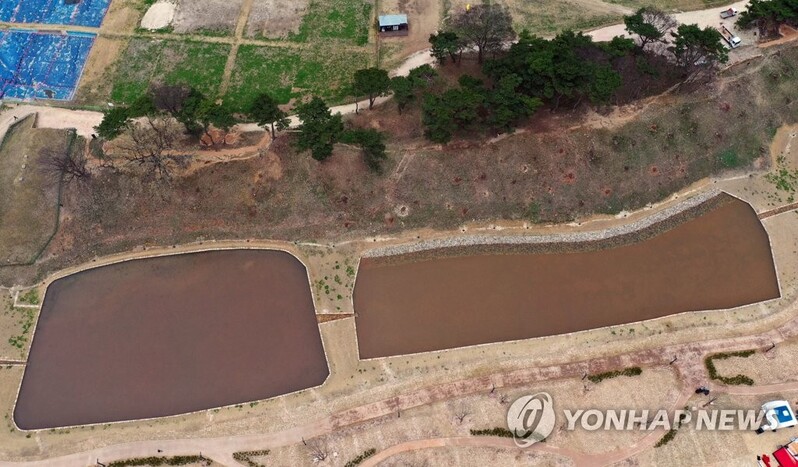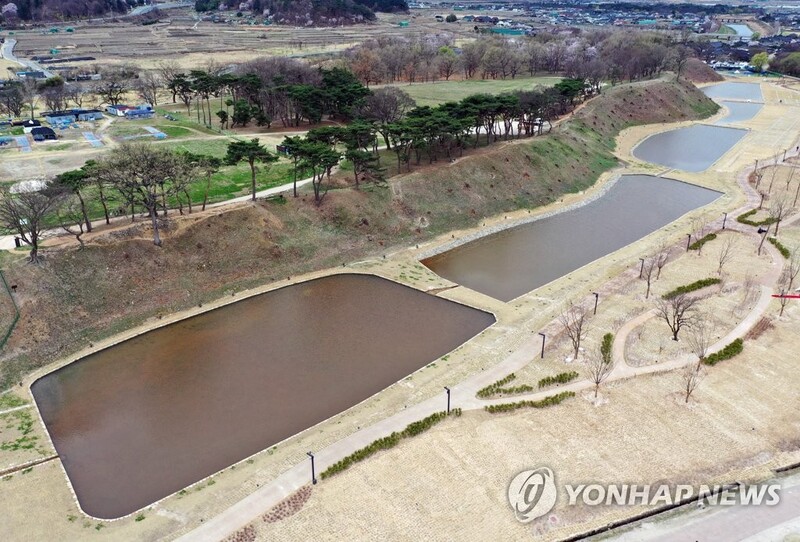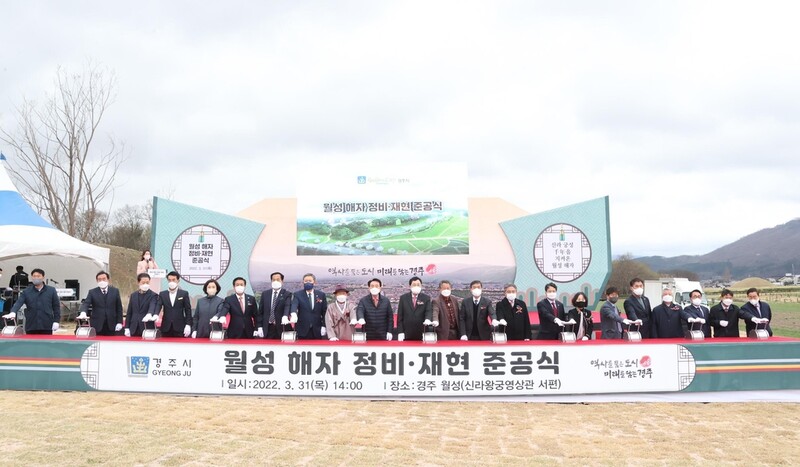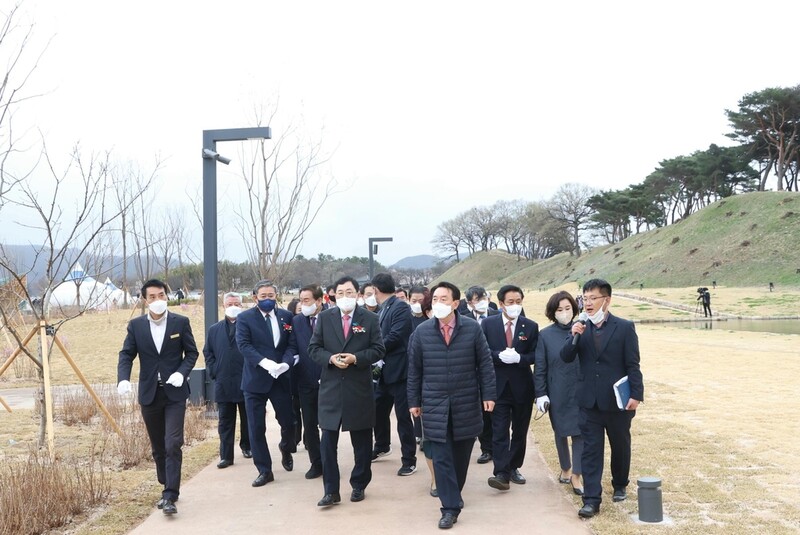 |
| ▲ This photo, shows the mort of the Wolseong Fortress that served as a defense facility during the Silla Kingdom. The restoration of the moat surrounding Wolseong, Gyeongju has been completed A moat is a pond dug on the outskirts of the wall. The width of the Wolseong Fortress' moat is measured to have a maximum width of 40m with a length of 550m. The Moat was first identified during the excavation and research process in 1984, and was continued till last year. The excavation process began in 2018. (Yonhap) |
 | |
|
 |
▲ This photo, provided by Gyeongju city, shows the ceremony marking the completion of the restoration process of the Wolseong Fortress Moat. (PHOTO NOT FOR SALE) (Yonhap) |
 |
| ▲ This photo, provided by Gyeongju city, shows that the Wolseong Fortress Moat restoration process has been completed. (PHOTO NOT FOR SALE) (Yonhap) |
SEOUL, April 1 (Yonhap) -- The border defense moat surrounding the Wolseong Fortress during the times of the Silla Dynasty, has been restored after three years since it was excavated. Gyeongju City plans to open the place to the public around the mid of April, once safety facilities including fences are installed.
The Cultural Heritage Administration, Gyeongsangbuk-do, and Gyeongju have spent 12 billion won since the December of 2018 to restore the moat of the Wolseong Fortress as one of the crucial heritage restoration business of Silla Wanggyeong. The moat, which was built to prevent enemy invasion, was built by filling water in a pit dug around the outskirts of the fortress wall. However, it was also presented as a facility that decorates the surrounding of the fortress.
The moat, along with the outer wall of the Wolseong Fortress has been identified and maintained since 1984 from excavating in seven sites.
The total length of these moats is measured to be 550m with a maximum width of 50m.
Through the analysis of the excavation, it has been revealed that the structure of these moat changed when Silla unified the three Kingdoms (Silla, Baekje, Goguryeo) in the 7th century. Before that, it was merely a pit-shaped moat filled with water. From the 8th century, however, the place began to decorate moats with stone, slowly changing its purpose from a military defense facility to a landscaping facility.
(This article is translated from Korean to English by Haemin Kim.)
(END)
(C) Yonhap News Agency. All Rights Reserved





















![[박스오피스] '만약에 우리' 200만 돌파…3주째 주말 1위](https://korean-vibe.com/news/data/20260126/yna1065624915992608_675.jpg)

![[테크스냅] 티빙, 국내 TV 드라마 일본·아태 17개 지역 공개](https://korean-vibe.com/news/data/20260126/yna1065624915992582_728_thum.jpg)